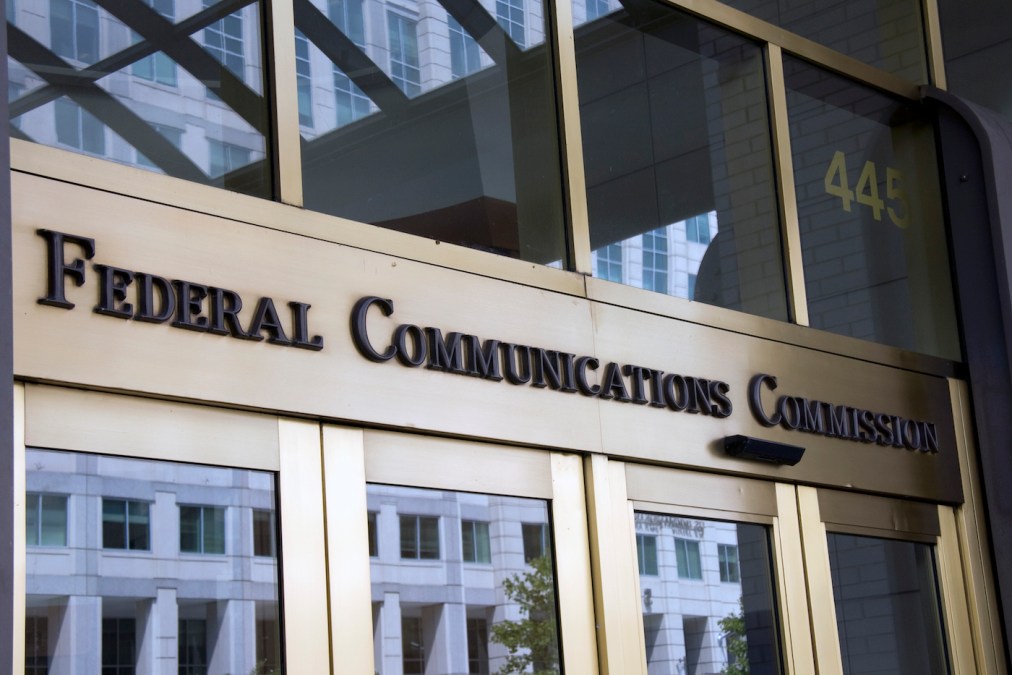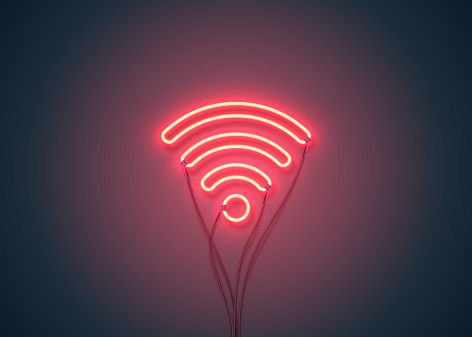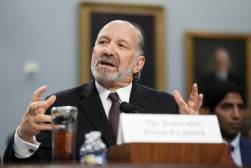FCC to vote on net neutrality rules on April 25

The Federal Communications Commission is preparing to vote to restore net neutrality at the commission’s open meeting later this month.
If adopted by the commission, restoring net neutrality would bring back a national standard for broadband reliability, security and consumer protection as well as reclassify the internet as a telecommunications service under Title II of the Communications Act of 1934. Net neutrality rules were first put in place under former President Barack Obama and were repealed by the FCC under former President Donald Trump in 2017.
The commission is scheduled to vote on the rules during an open meeting on April 25.
“After the prior administration abdicated authority over broadband services, the FCC has been handcuffed from acting to fully secure broadband networks, protect consumer data and ensure the internet remains fast, open and fair,” FCC Chair Jessica Rosenworcel said in a statement. “A return to the FCC’s overwhelmingly popular and court-approved standard of net neutrality will allow the agency to serve once again as a strong consumer advocate of an open internet.”
Since the FCC repealed net neutrality, it was left to the states to establish executive orders or legislation to replicate such protections.
The commission voted 3-2 in October on a rulemaking proposal to reinstate open internet rules. The deadline for comments on the rulemaking ended in January.
Since the commission indicated that it will be voting on net neutrality, several groups have come out to issue their support to reinstate the protections, including the Open Technology Institute, a technology program run by the Washington think tank New America Foundation.
“By restoring the rules upheld by the DC Circuit, the FCC is laying a strong foundation and can finally address a range of issues, from the security of our network performance to resilience reporting,” Raza Panjwani, a senior policy counsel with OTI, said in a statement.
Panjwani noted that there’s a potential to reinstate net neutrality at the same time the federal government is investing billions of dollars through the Broadband, Equity, Access and Deployment program.
“It only makes sense to also ensure every American is getting the full, open internet without interference from their [internet service providers],” he said.
The Benton Institute for Broadband and Society, a nonprofit established by former U.S. Sen. William Benton, also voiced support for the FCC to reaffirm net neutrality rules.
“This is about much more than blocking and throttling; it is also about public safety, national security and privacy,” Andrew Jay Schwartzman, a senior counselor for the institute, said in a statement. “Title II protects first responders’ ability to use the internet during emergencies and gives the FCC more authority to protect the integrity of America’s telecommunications networks from cyberattacks.”
However, not everyone is supportive of reinstating Title II regulations on broadband. Evan Swarztrauber, a senior fellow at the Foundation for American Innovation, an advocacy nonprofit, said in a statement that the commission “seems to be doing everything it can to undermine President Biden’s campaign promise of ‘Internet for All.’”
“The unfortunate reality is that the FCC has already wasted precious resources on a partisan relitigation of a tiresome debate that could, and should, be resolved by Congress via simple non-discrimination rules that would have bipartisan support,” wrote Swartztrauber, who previously served as a policy advisor to former FCC Chairman Ajit Pai. “The agency will never be able to regain the staff time spent on this issue that could have gone to worthy initiatives.”
Similarly, leadership within the nonprofit advocacy group for fiscally conservative causes known as Citizens Against Government Waste said the new rules will make it more difficult to close the digital divide.
“The new net neutrality is like the old net neutrality, only worse,” wrote Tom Schatz, president of Citizens Against Government Waste. “It is still tantamount to a government takeover of the internet that will stymie innovation, reduce investment in next generation technologies, and make it more difficult to go online for businesses, families and students.”






